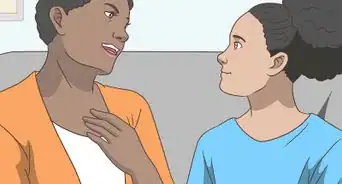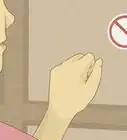X
wikiHow is a “wiki,” similar to Wikipedia, which means that many of our articles are co-written by multiple authors. To create this article, 17 people, some anonymous, worked to edit and improve it over time.
This article has been viewed 31,882 times.
Learn more...
Gangs can be a very bad influence on a teen. Teens often want to join a gang because of certain issues such as racism, poverty, loneliness, and media influences. You can prevent your teen from joining a gang by education about the appeal of gangs for teens, talking and listening to your teen, and getting involved in your own community.
Steps
Method 1
Method 1 of 3:
Educating Yourself
-
1Learn the appeal of gangs. There are many reasons why a teen might join a gang. Learning the potential draw of gangs for teens can help you identify if your teen is at risk.[1]
- Teens might seek out gangs for a feeling of belonging. If your teen feels like an outsider for any reason, he or she may seek out a gang for a sense of community.
- Peer pressure is also a major factor in teens joining gangs. If your teen has friends who are in a gang or associated with one, your teen may consider joining as well.
- Teens also don't always realize the danger of gangs. The idea of being part of a gang might be exciting, especially if your teen has been exposed to video games and other media that glorifies gang violence. If your teen has an underlying mental illness, such as a personality disorder, he or she might seek thrills through joining a gang.
-
2Investigate gang activity in your area. Location is a big risk factor when it comes to your teen joining a gang. Be aware of any gang activity in your area so you know what your teen might be exposed to at school or in the community.[2]
- You can research gang activity in your area by browsing police reports and police data online. Most areas have a police blotter website where you can enter your zip code and see of any recent arrests or disturbances in your area.
- Talk to officials at your teen's school. Principals and superintendents should be aware if there is any gang activity occurring in their jurisdiction. Make an appointment with an official at the school and ask him or her about gang activity.
- Many people feel certain locations make them immune to gangs. If you live in the suburbs, for example, you might think your teen is immune to gang violence. However, in a lot of big cities gangs eventually move into the suburbs. In the Chicago suburb Evanston, for example, gang activity has been on the rise in the last few years. Be vigilant about potential gang activity regardless of your location.
Advertisement -
3Familiarize yourself with the warning signs your teen is involved with a gang. Make sure you know the warnings signs regarding gang activity in teens. You should be concerned if your teen is displaying any of the following signs:
- Wearing a certain color or color scheme suddenly
- An increased interest in gangs, gangster music, and gangster movies
- Bragging about having friends in gangs
- Coming home with expensive items
- Using hand gestures and signs to communicate with friends
- Aggressive or withdrawn behavior
Advertisement
Method 2
Method 2 of 3:
Working with Your Teen
-
1Talk to your teen about gangs. Education is key to keeping your teen from joining a gang. Take time to sit down and talk to your teen about the dangers of gangs.[3]
- Be as frank as possible when discussing gangs with your teens. Explain that, short term, gang activity can lead to trouble with police, trouble with school, and poor relationships with family members. Longterm, make sure your teen knows gang activity can prevent them having access to education and employment options, time in jail, and a risk to their personal safety and the personal safety of their family and friends.
- Listen as well. Your teen may be compelled to argue or even disregard what you're saying. Try to understand why your teen is resisting. Is he or she being intimidated by a gang? Is a person your teen looks up to in a gang? Understanding the reasons gang membership is appealing to teens can help you better address the problem.
-
2Keep your teen engaged in other activities. Teens often join gangs for a sense of community or for some excitement. Keeping your teen as engaged in other activities as possible can lessen the draw of gangs.[4]
- Encourage your teen to engage in activities that appeal to his or her interest. Is your teen always sketching or drawing? Enroll him or her in art classes. Is your teen athletic? Encourage him or her to join a school sports team. Is your teen interested in music? Invest in a piano, guitar, or other musical instrument.
- Push your teen to find an after school job. While some teens might resist the notion of working, emphasize how building a work ethic can help later on. Talk about what your teen could do with all the extra spending money.
- Allow your teen to have friends over at your house. You want your teen to feel most comfortable at home, where it's safe. This also gives you an opportunity to get to know your teen and his or her peers. You can encourage wholesome activities, like board games and age appropriate movies, over the kinds of activities that might land your teen in trouble.
-
3Learn how to best communicate with a teen. Communicating with teenager can be difficult. Most teens feel an increased need for autonomy and independence, which means they may pull away and rebel against you. However, learning the means to effectively communicate with a teen can help.[5]
- Always listen without judgment. If your teen is willing to share something with you, let him or her. Try to stay calm and listen, even if your concerned by what your teen is saying. Remember, as a parent you're better off hearing bad news than not hearing it. Being reactionary and harsh can discourage your teen from reaching out when in need.
- Respect your teen's sense of privacy and autonomy. Unless you suspect a serious problem, allow your teen his or her own space. Let them have a bedroom to themselves. Do not always ask who your teen is calling or texting on the phone. Do not touch your teen's belonging without permission.
- Schedule times to talk. You do not need to schedule a weekly conversation, but having a family dinner night or board game night gives your teen the opportunity to share. Strive to keep communication open and keep yourself available when your teen is in need.
-
4Identify positive role models for your teen. Teens often join gangs because they feel lost. Lacking positive role models, a teen might turn to the allure of a gang. Identify positive roll models for your teen.
- Get your teen involved in the community. Encourage him or her to volunteer. Take him or her to church, town hall meetings, and other places and meetings you attend.
- Teach your teen about people you admire. This can be someone you know personally, like your great-grandmother who supported her family during the Great Depression. It can also be a public figure, like a politician or activist. Showing your teen what you believe admirable qualities constitute can lessen the appeal of gang members.
Advertisement
Method 3
Method 3 of 3:
Improving Your Community
-
1Remove gang related graffiti. Graffiti is often a way for gangs to advertise and recruit new members. If you notice new or unusual graffiti in your area, google the images to see if they're gang affiliated. If they are, talk to the local police about having them removed as soon as possible. Depending on regulations in your area, you may be able to remove the images yourself or schedule a community cleanup. Stop by the local courthouse and ask what your options are in terms of arranging a cleanup.
-
2Team up with other parents. The phrase "It takes a village to raise a child" exists for a reason. You cannot do this alone. Work with other parents to build a stronger community and to keep out gangs.[6]
- Schedule a meeting with other parents in town to discuss gang activity in your area. Brainstorm ideas about how to keep your teens out of gangs.
- Working together, you and other parents can create regular community events and activities for teens to engage in in order to discourage them from joining gangs. You can also go, as a group, to a PTA to raise any concerns you have about gang activity in the school system.
- Look into starting a neighborhood watch to keep on the lookout for gang activity.
-
3Take political action. In order to address gang activity, political action may be necessary. Increasing law enforcement presence in your are and providing community outreach to at-risk teens may be needed in your area.[7]
- Start letter writing and phone campaigns to local members of Congress. Explain why your area needs help addressing gang violence and gang activity. Demand community outreach in your area.
- Raise awareness. Buy an ad on the local radio. Hand out pamphlets at community centers, schools, churches, grocery stores, and other areas.
- A single call to local police about gang activity has little effect. A collective group effort is necessary to stomping out gang activity in your area. Make sure other parents on board with talking to the police together.
Advertisement
Community Q&A
-
QuestionMy daughter is starting to wear beat up clothing and steal things. Could she have joined a gang?
 Community AnswerWhile it is possible, that may not be the case. She might just be hanging out with the wrong crowd, or there might be something bothering her emotionally. See if you can get her to open up to you. Let her know that she can always come to you with her problems and you will be supportive and she will not be in trouble.
Community AnswerWhile it is possible, that may not be the case. She might just be hanging out with the wrong crowd, or there might be something bothering her emotionally. See if you can get her to open up to you. Let her know that she can always come to you with her problems and you will be supportive and she will not be in trouble. -
QuestionMy child has been talking to his friends about something called YSL. Is that a gang? Also, she has been saying "Drain Gang" and listening to songs with that term. Advice?
 Alien Girl (not human)Community AnswerYSL is a fashion brand. Drain Gang is a band. While she could be in a gang, she most likely is a fan of Drain Gang and likes YSL products.
Alien Girl (not human)Community AnswerYSL is a fashion brand. Drain Gang is a band. While she could be in a gang, she most likely is a fan of Drain Gang and likes YSL products. -
QuestionMy daughter started listening to Drake. Could she be in a gang?
 Alien Girl (not human)Community AnswerDrake is a popular musician and she probably just likes the songs.
Alien Girl (not human)Community AnswerDrake is a popular musician and she probably just likes the songs.
Advertisement
References
- ↑ https://web.northeastern.edu/jfox/Blogs/046%20June%2016%202010%20The%20appeal%20of%20gangs.pdf
- ↑ https://www.ojp.gov/sites/g/files/xyckuh241/files/archives/ncjrs/243465.pdf
- ↑ https://content.ces.ncsu.edu/gangs-what-can-parents-do
- ↑ https://content.ces.ncsu.edu/gangs-what-can-parents-do
- ↑ http://psychcentral.com/lib/how-to-talk-with-your-teenagers-not-at-them/
- ↑ https://www.ojp.gov/sites/g/files/xyckuh241/files/archives/ncjrs/243472.pdf
- ↑ https://www.ojp.gov/sites/g/files/xyckuh241/files/archives/ncjrs/243472.pdf
About This Article
Advertisement











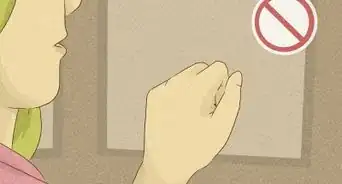
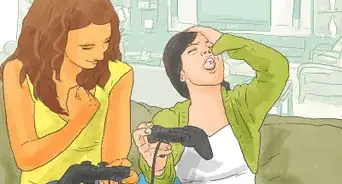

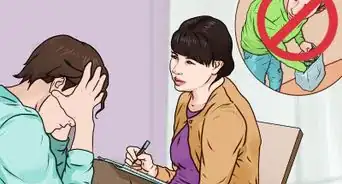


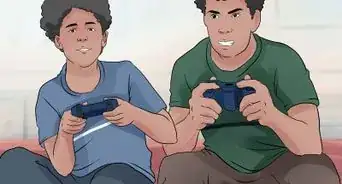
-Step-19-Version-3.webp)



